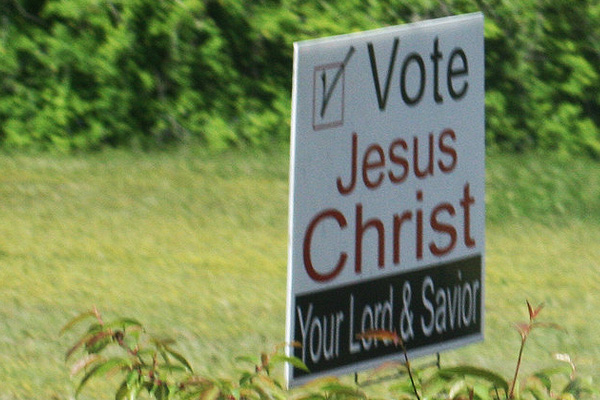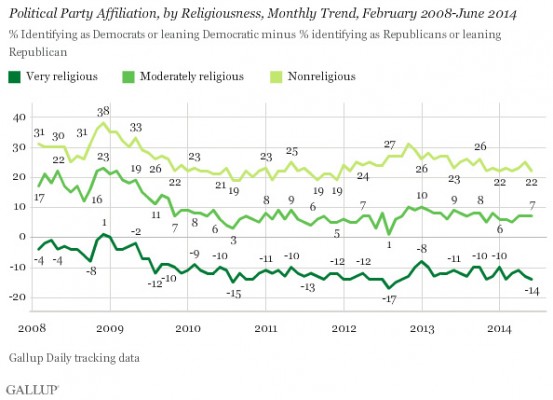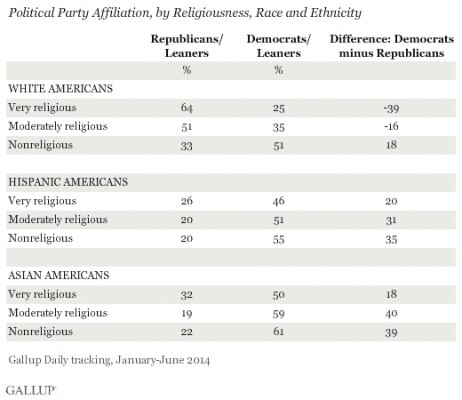
Gallup Poll Shows Close Ties Between Political Affiliation and Religion
- By Kyle Glatz --
- 25 Aug 2014 --

Recent Gallup study discovers that political affiliation is closely tied to religious beliefs.
There are a variety of factors that individuals use to select their political affiliation. From parental influence to education, these political elements can take any form. However, according to a recent Gallup Poll, some of the strongest ties between Americans’ political leanings are found to have a direct correlation with their religion. While it is not an all-encompassing means of defining the effects of religion on political affiliations, the results are being used to predict the party support of individuals in religious and secular areas of the nation.

The Study Parameters
The Gallup Poll which found this ongoing correlation between religion and political parties took a sample of over 30,000 individuals as well as over 15,000 per month in 2013 and 2014. It broke the individuals down into three groups. The “very religious” group reported that religion was both important in their lives and they actively attended church. The “moderately religious” class reported that religion was important to their daily lives, but did not attend church services. The final class, “Nonreligious”, does not believe religion to be a significant part of their lives, and they rarely, if ever, attend church.
Political Leanings
It may not come as a surprise to many, but the individuals who identified as “very religious” also identified as supporters of the Republican Party in 49% of the time , whereas the Democrat party only garnered 36% support from the same set of individuals. In terms of the “moderately religious” individuals, they leaned Democrat 44% of the time as opposed to 38% who were said to support Republican politicians. Finally, “Nonreligious” individuals leaned Democrat in 52% of the cases, with the Republican Party garnering 29% of the vote. Independent or non-affiliations voters had between 10 and 15% of the vote in all three categories.
Exceptions To The Gallup Poll

When broken down into further subsets, the information gives a better look at each party. One of the subsets that provided great insight was when the party support was broken down along race. The poll found that Black Democratic Partisanship was not affected by their stance on religion, with about three-quarters of Black Americans in each religious subset voting for the Democrat Party. For Hispanic and Asian Americans, the information is much more skewed, with a wider range between religiousness and their party support. In White Americans, the study showed that very religious individuals were far more likely to vote Republican, while Nonreligious individuals were slightly more likely to vote for the Democrat Party.


















